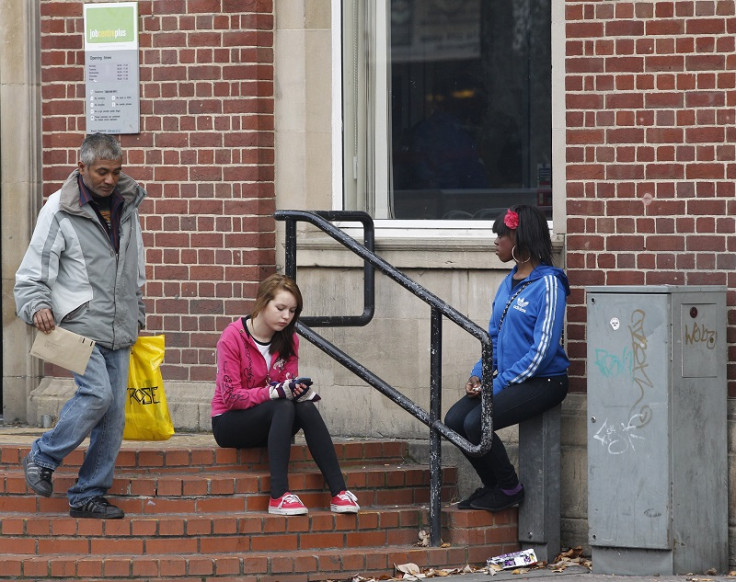Have Young People Been Made A Scapegoat In The Economic Crisis?

From November last year to January 2014, almost 20% of the economically active youth (16-24) were unemployed in the UK. A 0.7% drop in unemployment in this age group from the previous quarter was enough for the youth to be satisfied, some said.
Since the economy came crashing down in 2008 to 2012, unemployment within the 16-24 age bracket had skyrocketed by almost by 10% - considerably higher than unemployment in the UK as a whole.
So have young people been given a raw deal?
The youth in the UK are often branded as lazy, arrogant, and self-centred. This certainly does apply to some of the younger people. But surely this applies to all generations?
Big wigs and corporate fat cats were always going to look for someone to blame when the chips were down, and they found solace in the fact that the youth didn't, and still doesn't, have a voice to represent them.
At every stage in our life, we've been told that the next one is the biggest. In primary school, SATs meant everything [or at least they did to younger readers].
And then you get to secondary school and they tell you 'no, GCSE's will determine what you do for the rest of your life.'
You finish you GCSE's and you're told that you're not really going anywhere without A-Levels, and university is a must after all of this.
Only for you to finish all of that, and for every employer to tell you that all the while, you shouldn't have been learning, but instead getting experience.
It's a vicious circle. You need experience to get experience. Not many companies are prepared to give you it, but most require it.
Granted, there is only so much education that you need before experience is necessary. But how long can people be expected to complete internships for little to no money?
So maybe this is why the younger people are 'lazy, arrogant, and self-centred'. All of our life we've been reaching for something, only for the bar to be raised every step of the way.
And in the midst of all of this, the government made university fees unfeasibly high. Maybe this was a stroke of genius. Maybe it was to encourage the new generation to go out and gain more experience instead of learning. But such a rationale is extremely dubious.
The Youth Contract, which launched in April 2012, was designed to get younger people into work. But how successful really was it?
Since its introduction, the unemployment rate in people aged 16-24 has barely declined. And it could be argued that the recent decline in unemployment is down to the improvement of the economy.
Earlier this week, László Andor, the European commissioner responsible for employment was critical of the Youth Contract, tweeting: "With youth unemployment too high at over 19% UK should implement YouthGuarantee; existing UK Youth Contract not sufficient to deliver."
And we do need to implement a programme similar to the European Commision's Youth Guarantee, which ensures that people aged 16-25 get a concrete offer of a "good quality" job, apprenticeship, training or continued education within four months of them leaving education or becoming unemployed.
People fresh out of university shouldn't just be given the jobs of those who are more experienced than us. They don't automatically deserve such jobs more. But young people have had to fend for themselves for years; they need help and guidance.
It's disappointing that a lot of companies haven't recognised that new, younger employees could potentially bring something fresh. Bring more enthusiasm. But most importantly, bring that desire to learn and not repeat the mistakes that the generations before us have made.
© Copyright IBTimes 2025. All rights reserved.






















